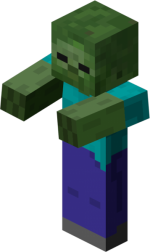Stop Talking About #GamerGate Like It’s Real.
Posted in Editorials on October 8th, 2014by Elizabeth
Tags: Feminism • Video Games
Background reading in case you haven’t been paying attention:
Attacks on women in gaming are so obviously not about ethics, but about misogyny by Amanda Marcotte at Pandagon
We must dissent: Intel bows to GamerGate campaign to silence feminist video game criticsby Katherine Cross at Feministing
All caught up? Good.
I’ve been thinking about Intel’s decision to pull ads from gaming site Gamasutra. Intel is not a cable news anchor who thinks 4chan is a person. According to Wikipedia, Intel is one of the world’s largest and highest valued semiconductor chip makers, based on revenue. People who work there understand what’s happening here. They can see the AstroTurf and false flags.
So that leaves us with a few options:
1. Intel didn’t know that it was a manufactured controversy or didn’t care and was swayed by the arguments.
2. Intel didn’t care about the arguments and was worried about bad publicity. In other words, they’re afraid of 4chan.
3. Intel knows that it’s not a real grassroots campaign, but agrees with the arguments anyway.
From the apology they issued soon after pulling their ads, all signs point to #2.
“And, diversity is an integral part of our corporate strategy and vision with commitments to improve the diversity of our workforce,” Intel continued. “And while we respect the right of individuals to have their personal beliefs and values, Intel does not support any organization or movement that discriminates against women. We apologize and we are deeply sorry if we offended anyone.”
Oh ok, so a bunch of bullies convinced a giant corporation to drop some ads. I suppose that’s newsworthy.
But that’s not how the narrative is being told. Gaming journalists are still talking about #GamerGate like it’s a real thing and not a bullying campaign from the bowels of the internet. This is disingenuous at best, and misogynistic bullshit at worst.
The idea that corporations or journalists should need to expend any special effort to avoid “taking sides in an increasingly bitter debate” is ludicrous when you realize that there aren’t two sides here. There’s a bunch of trolls who are mad at a woman they don’t know for things that allegedly happened her private sex life as told by a vindictive ex-boyfriend so they’re throwing a temper tantrum on the internet. And there’s women who work in gaming and play video games who don’t want to be harassed. If you see these sides as at all equal, you are deficient in your logic or your morals. Or you’re just lying.


